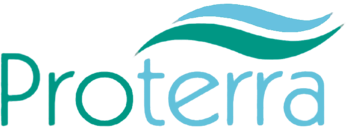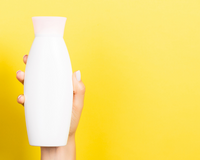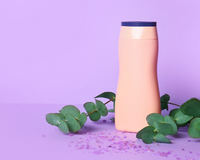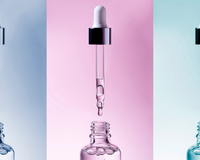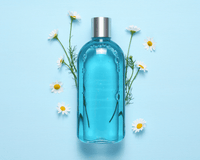Products having your name on them are known as private label hair products for African American. Your image is in your hands. Your clients use hair care products on a daily basis, whether it's shampoo, conditioner, style crème, or finishing products. The problem is that many of the things you prescribe and utilize in your salon may be purchased elsewhere. Private label manufacturers do all of the heavy work, such as formula development, package procurement, and product testing, so you can take control of your business and create your own brand with branded private label hair products.
The majority of the money spent on the other brands you use goes to marketing and promotion of other companies, not yours. Change your spending habits by investing in your own marketing and advertising to expand your business, invest in education, purchase new equipment, and help your community.
Your customers utilize hair care products on a daily basis. Shampoo, conditioner, hairspray, gel, and mousse are all essentials. They'll think of you and your salon every time they use your custom-designed private label hair care products. Looking great in-between visits promotes customer loyalty and produces positive word-of-mouth for your salon and business.
Private Label Hair Products For African American
You're well aware that hair maintenance may be challenging. After that, for some of the biggest names in the hair business, they created natural hair care for all hair types. Amazon merchants, internet entrepreneurs, beauty salons, large box stores, and national retailers all benefit from these labels. They've built a reputation for making safe, reliable goods that do what they're intended to do. There are far too many items aimed at the African-American market that fall short of expectations. The objective is to address that need by developing healthy, ecologically friendly cosmetics.
Researches revealed that hair care products used largely by African American women in the United States include a variety of chemicals that can have severe adverse effects, according to a recent report. These pollutants have been linked to early puberty, hormone disruption, asthma, and possibly cancer, according to the research. Nearly 80% of hair care products offered to African Americans include potentially hazardous ingredients.
The bulk of these compounds did not include in the ingredient statement, which is even more concerning. Parabens and phthalates are the most common culprits discovered in black hair care products, and they can alter the body's hormone balance, resulting in premature births and early puberty.
Benefits of Using Private Label Hair Products For African American
Because the finest investment you can make is in yourself. Grow your own brand, not someone else's, to help your bottom line. You haven't had much of a say up until now. You spend top dollar to put money in the coffers of the large haircare manufacturers, with promises of goods flying off the shelves. Then you discover that the identical items you're promoting to your clients are available elsewhere. You may design and launch your own hair care product line with a private label, allowing you to keep more of your revenues, invest in your own brand, and grow your salon.
A solid base for any look. This versatile dry mist so, which is half working spray and part finishing spray, provides mild grip to set, style, protect, and finish wet or dry hair. For a smooth and ultra-glossy finish, Style & Shine infuses hair with long-lasting weightless volume, protects hair from color fade, and repels moisture while controlling static, frizz, and flyaways. Create the ideal finishing touch to your ensemble. You can control, define and retain your mane for a long time. Use wet or dry hair to maintain your edge and protect it from flaking or frizzing. It's made of water, the finish is semi-matte. This pomade defines and retains textured hairstyles.
What Is Private Label?
Products create and manufacture under a separate brand name by a corporation or store know as private labels. Private label items, often known as white labels, allow a company to promote and sell its goods without revealing the identity of the producer. The retailer is in charge of all aspects of the private label product's creation and promotion. "Private Label" is a term that often uses across the world. The number of suppliers and merchants who produce/produce brands and rely on them for the majority of their revenues is quite large. Consumers' perceptions of Private Labels are also highly good across the world, as can see from the peak of production.
In terms of quality requirements, Private Label utilizes product areas where identical items from well-known brands are unlikely to vary. The objective for this is to maintain market-standard quality while lowering product costs. So, producing and selling standard quality chocolate, detergent, or sweatshirt, for example, is far more logical in terms of attracting the consumer with a price-performance balance than attempting to produce/sell a high-quality shoe or electronic product that is beyond the average consumer's purchasing power or preference. As a result, cosmetics are at the top of the list of categories with the most Private Label brands.
Features Of Having Private Label Brand
Besides that, pricing, size, container design, manufacture, and distribution are all elements that private labels offer merchants control over. In order to win market share against national brands, retailers might create and apply creative concepts. So that, this includes the capacity to make fast changes to products in response to changing client preferences.
Private branding enables the creation of a distinct image that aids in getting to know the consumer better. Private label manufacturers should allow to customize the packaging and labels to the owner's specifications. The product name, description, company logo, and contact information are all included. This helps to customize a customer's purchasing experience, which leads to increased loyalty. Additionally, a successful private label product brand will be able to provide merchants with more sales opportunities.
Another benefit it can give is the ability for private label merchants to become wholesalers of their own brands. However, it offers you the advantage of being able to offer restricted access to other retailers that are ready to pay high purchasing prices for the privilege to sell your brand as a wholesaler. This will increase income while also exposing the brand to a larger audience.
